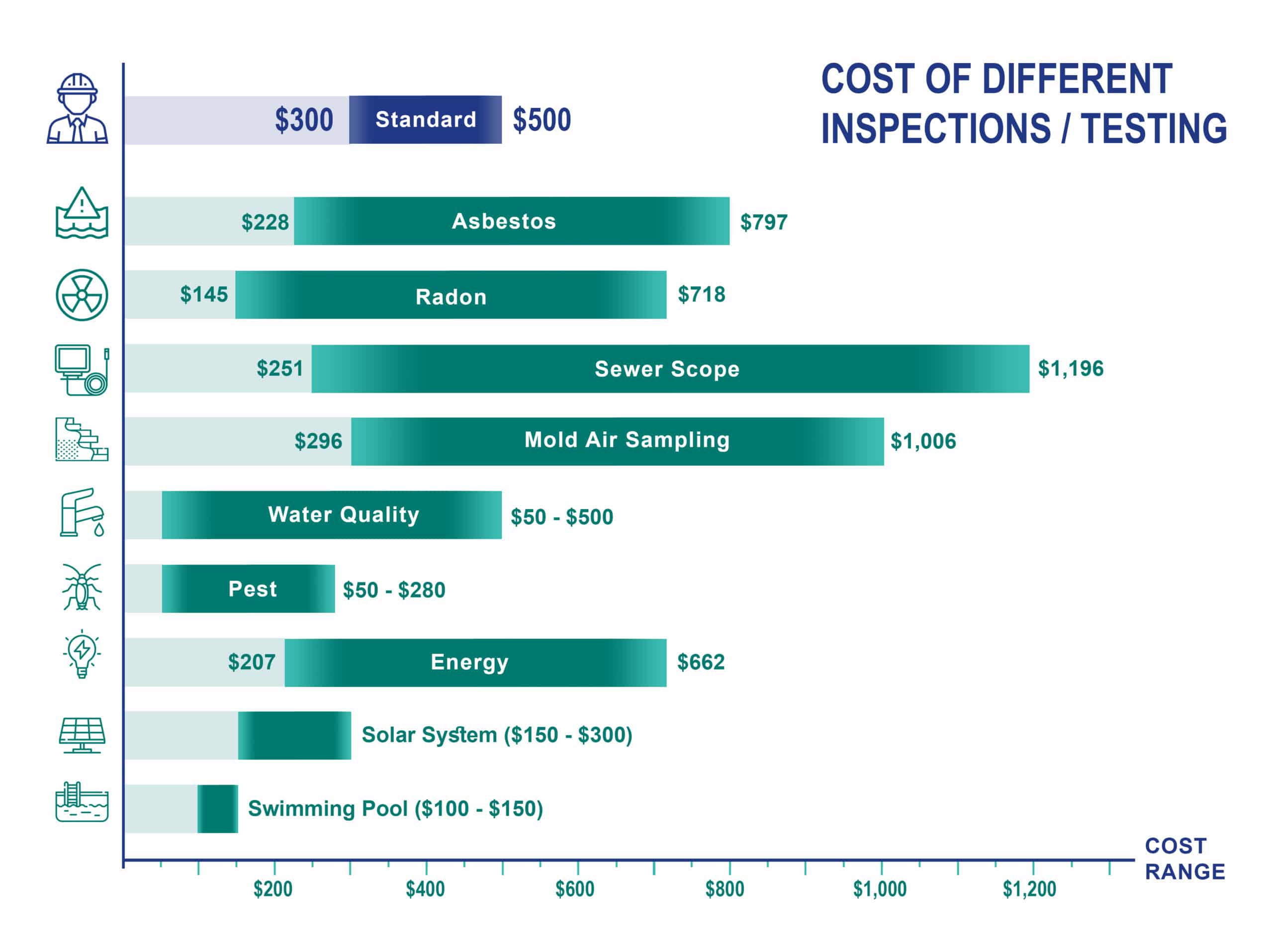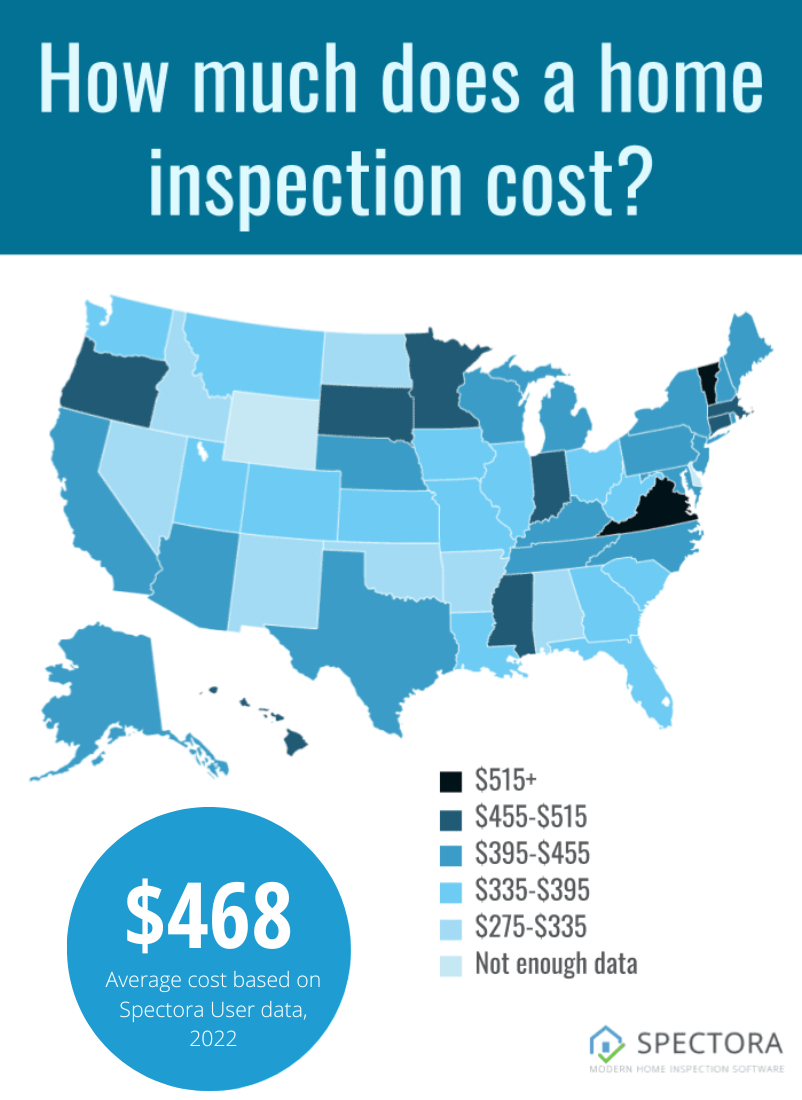How Much Does A Home Inspector Make A Year

The American dream of homeownership often begins with a crucial, yet sometimes overlooked, step: the home inspection. But beyond the buyer's peace of mind, lies a profession with its own set of financial realities. How much do these gatekeepers of property integrity actually earn, and what factors influence their income?
Understanding the earning potential of a home inspector requires delving into a complex interplay of location, experience, market demand, and business acumen. This article dissects the average annual salary of home inspectors in the United States, explores the variables impacting their income, and provides a forward-looking perspective on the profession's financial outlook.
National Averages and Salary Ranges
According to recent data from the U.S. Bureau of Labor Statistics (BLS), home inspectors are categorized under "Construction and Building Inspectors," making it challenging to pinpoint an exact average salary solely for home inspectors. However, reputable sources like Indeed and Salary.com offer more specific insights.
These platforms estimate the average annual salary for home inspectors in the United States to range from $60,000 to $80,000. It's important to note that this is just an average, and many inspectors earn significantly more or less depending on various factors.
Factors Influencing Home Inspector Income
Location, Location, Location
Geographic location is a primary driver of income for home inspectors. States with higher costs of living and robust real estate markets, such as California, New York, and Massachusetts, generally offer higher earning potential.
Conversely, states with lower housing costs and less active real estate markets may see lower average salaries for home inspectors. The demand for inspections directly correlates with the volume of home sales, making location a critical determinant.
Experience and Certifications
As with most professions, experience plays a crucial role in determining a home inspector's income. Entry-level inspectors typically earn less than their seasoned counterparts who have built a strong reputation and client base.
Furthermore, professional certifications from organizations like the American Society of Home Inspectors (ASHI) or the International Association of Certified Home Inspectors (InterNACHI) can significantly boost earning potential. These certifications demonstrate expertise and credibility, attracting more clients and allowing inspectors to command higher fees.
Market Demand and Economic Conditions
The real estate market is inherently cyclical, and the demand for home inspections fluctuates accordingly. During periods of economic growth and booming housing markets, home inspectors tend to be in high demand, leading to increased income opportunities.
However, during economic downturns or periods of high interest rates, the real estate market cools down, and the demand for inspections decreases, potentially impacting earnings. Economic indicators and housing market trends directly influence a home inspector's financial prospects.
Business Model and Marketing
Home inspectors can operate as independent contractors, work for larger inspection companies, or even own their own businesses. Independent contractors often have the potential to earn more but also bear the responsibility of managing their own marketing, scheduling, and finances.
Effective marketing strategies, such as building relationships with real estate agents, using online advertising, and maintaining a strong online presence, are crucial for attracting clients and maximizing income. A proactive approach to business development is essential for financial success.
Types of Inspections Offered
Some home inspectors choose to specialize in specific types of inspections, such as mold inspections, radon testing, or pool inspections. Offering a broader range of services can increase revenue streams and attract a wider clientele.
These specialized services often require additional training and certifications, but they can also command higher fees. Diversifying inspection offerings can be a strategic way to enhance earning potential.
Expenses and Overhead
While the gross income of a home inspector may appear attractive, it's important to consider the expenses associated with running a home inspection business. These expenses can include transportation costs, insurance premiums, marketing expenses, software subscriptions, and equipment maintenance.
Self-employed inspectors also need to account for self-employment taxes, which can significantly impact their net income. Careful budgeting and financial planning are essential for managing expenses and maximizing profitability.
The Future of Home Inspection Income
The demand for home inspections is expected to remain steady in the coming years, driven by continued home sales and increasing awareness of the importance of pre-purchase inspections. As the housing market evolves, home inspectors who adapt to new technologies and inspection techniques will be well-positioned for success.
The increasing adoption of drones and thermal imaging cameras, for example, is transforming the industry and creating new opportunities for inspectors with specialized skills. Staying ahead of the curve and embracing innovation will be crucial for maintaining a competitive edge and maximizing earning potential.
In conclusion, the annual salary of a home inspector varies widely depending on a multitude of factors. While the average salary falls within a reasonable range, individual success depends on location, experience, market conditions, and business acumen. By understanding these variables and proactively managing their businesses, home inspectors can build a rewarding and financially sustainable career.


















